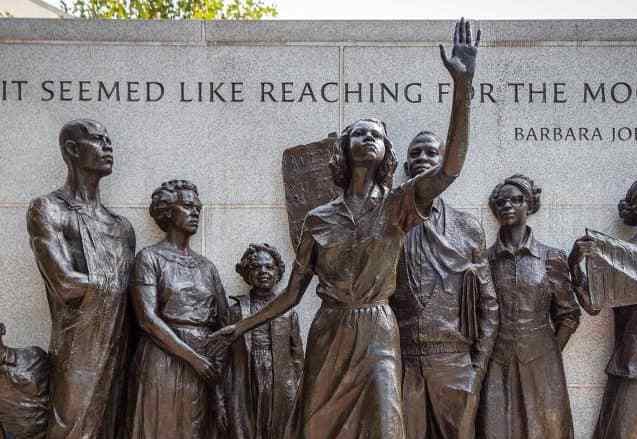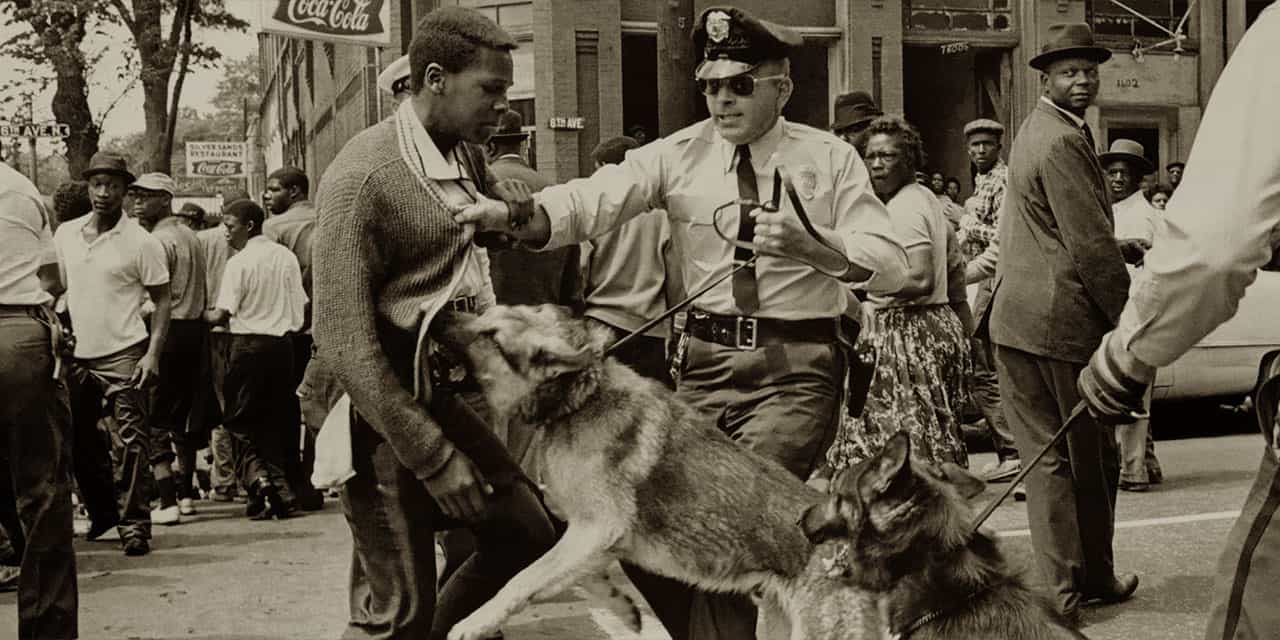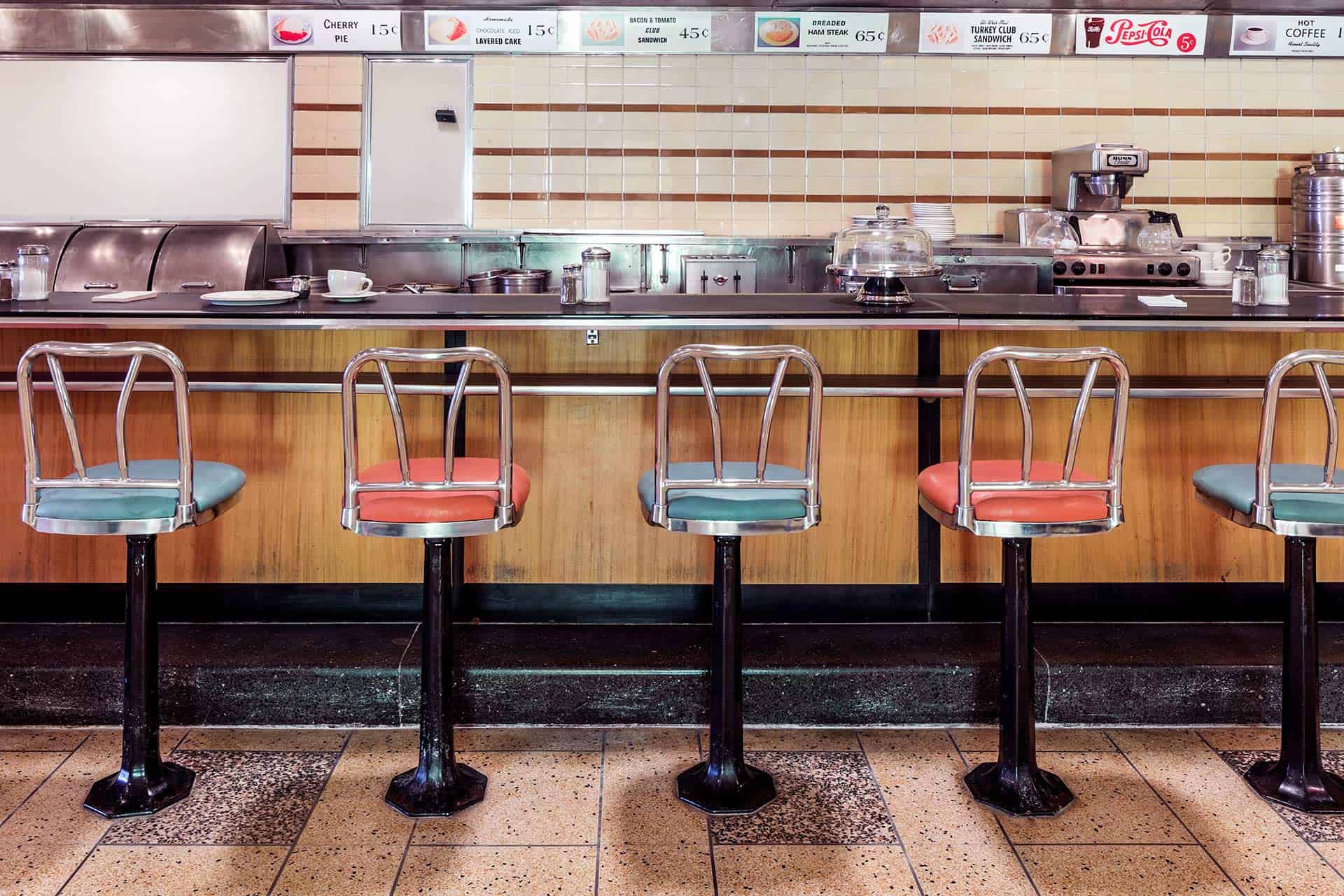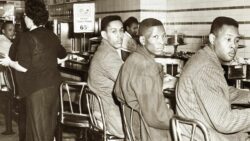“If you remember the 60’s you weren’t there”

America; “If you remember the 60’s you weren’t there” It’s one of those throwaway lines that is still revisited from time to time to describe the excesses of a decade. While it may have accurately summed up the the drug fueled, self-centered, celebrity world of the rock-star it becomes increasingly glib on analysis.
Quote it to present day Vets who left college as fresh faced kids only to find themselves on a fast-track to Vietnam, or those who were marching for nothing more than equality and the right to vote, and it will certainly have a hollow ring.
For those of us of a certain age, 60’s America was the provider of great music, addictive TV shows and unmissable film entertainment.

The real world, however, delivered a very different story. We watched the news with mixture of astonishment and horror, as police with dogs, batons, water cannons and guns, displayed a brutal and hateful side of the USA to our television sets (the armchair horror show from Vietnam would come later).
In the Land of the Free a virulent system of apartheid – every bit as sophisticated and cruel as that in South Africa – was alive and literally kicking, a century after the end of the Civil War.
Sixties America was also news for high profile assassination – Kennedy, Kennedy, King – KKK, surely just an unfortunate co-incidence? And nobody has forgotten that.

It’s a measure of how times have changed, then, to learn that Travel South USA, an amalgam of latter day strictly no surrender southern states, has recently launched the US Civil Rights Trail, commemorating the heroic efforts of those who marched for freedom. The Trail features the most infamous landmarks from those turbulent times.
Visitors can worship in the Birmingham, Alabama church that members of the Klu Klux Klan bombed one Sunday, killing four girls. They can walk across the Selma bridge in Alabama where, in 1965, state troopers attacked the unarmed marchers with clubs and tear gas after they passed over the county line. The event, one of several attempts to march from Selma to Alabama’s state capital Montgomery, became known as Bloody Sunday and one of the organisers, Amelia Boynton, was beaten unconscious.
They can tour the birthplace of Martin Luther King Jr. in Atlanta, Georgia and pay their respects at the National Civil Rights Museum at the Lorraine Motel in Memphis, Tennessee, where a lone gunman assassinated King 50 years ago.
Visitors can also see inside the Woolworth’s store in Greensboro, North Carolina where four black college students occupied “whites only” lunch counter stools and launched the sit-in movement.
“The Travel South member states were at the heart of the civil rights struggle in the 1960s, a time of triumph and tragedy that redefined America,” said Travel South President and CEO Liz Bittner. “This multi-state trail will allow visitors to see, touch and experience the places that continue to inspire people across the world.”
Other memorial sites include the Mississippi home of activist Medgar Evers who was gunned down by a white supremacist, and tour the small-town Sumner County, Mississippi courthouse where the killers of 14-year-old Emmett Till were found not guilty.
There are more than 80 sites on the website at www.civilrightstrail.com
[simple-payment id=”8065″]






